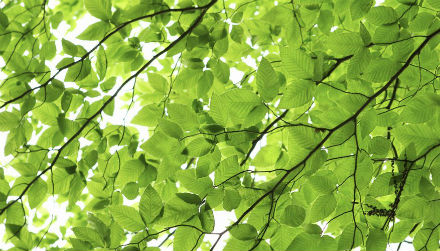|
NOVIDADES
Current assessments of climate change could overestimate the amount of carbon that plants remove from the atmosphere. That’s because models of photosynthesis often leave out a poorly-understood limit on the process. Now US researchers have calculated that if its representation is doubled, climate models predict an additional 9 Gigatonnes of carbon will still be in the atmosphere by 2100, instead of being locked away inside plants. “Photosynthesis is the largest flux of carbon into terrestrial ecosystems, yet there is still uncertainty in our understanding of its physiological and environmental controls,” says Danica Lombardozzi from the US National Centre for Atmospheric Research. “Our findings suggest that TPU [triose phosphate utilisation] currently limits photosynthesis, and TPU limitation may become even more limiting to photosynthesis in the future. Yet TPU-limited photosynthesis is... poorly constrained by observations and is therefore not always included in photosynthesis models.”  Credit: Sciencing
When the Calvin cycle cannot produce triose phosphates quickly enough, plants are forced to absorb less carbon dioxide – an outcome known as ‘triose phosphate utilisation (TPU)-limited’ photosynthesis. The effect becomes more pronounced at cold temperatures, high light levels, and – importantly for climate scientists – higher concentrations of carbon dioxide. However, despite the significance of TPU limitation in determining levels of atmospheric carbon, it is difficult to observe experimentally, resulting in large uncertainties. Lombardozzi believes that reducing these uncertainties – allowing the effect to be included in photosynthesis models – could be vital for making more accurate predictions of climate change. “Taking consideration of TPU limitation is particularly important for improving model projections of future climate scenarios,” the researcher says. “Models that exclude TPU limitation from their photosynthesis calculation may overestimate the amount of carbon that enters into and is stored in terrestrial ecosystems, which leaves more carbon dioxide in the atmosphere and potentially increases carbon dioxide concentrations more than currently projected.” Lombardozzi and colleagues assessed the potential impacts of increasing the representation of TPU limitation in photosynthesis models on global simulations of climate change. “Our results suggest that TPU-limited photosynthesis is likely to become more important in the future, particularly as carbon dioxide concentrations increase,” says Lombardozzi. “More research is needed to improve our understanding of TPU-limited photosynthesis both in the field and in photosynthesis models. Ultimately, this may help to constrain uncertainty in global carbon cycle projections.” The team reported their findings in Environmental Research Letters (ERL). PhysicsWorld. Posted: Aug 20, 2018. Assuntos Conexos: |
|||||||||||||||||||||||||